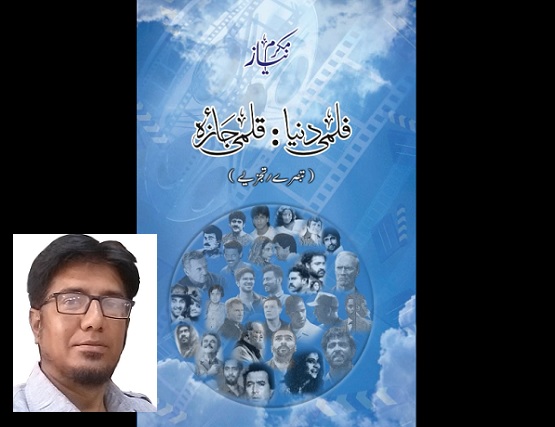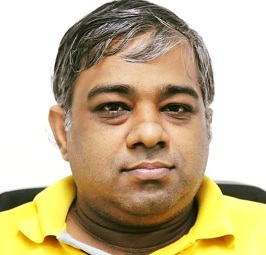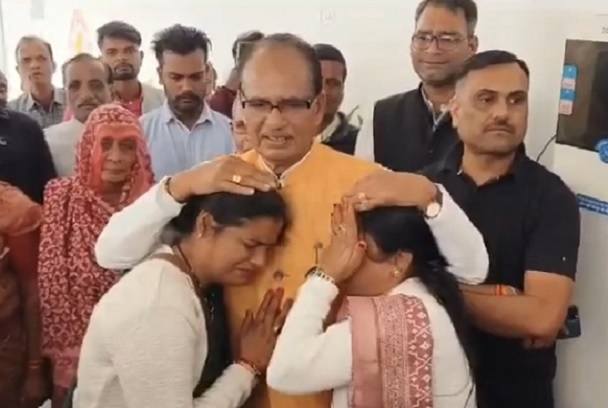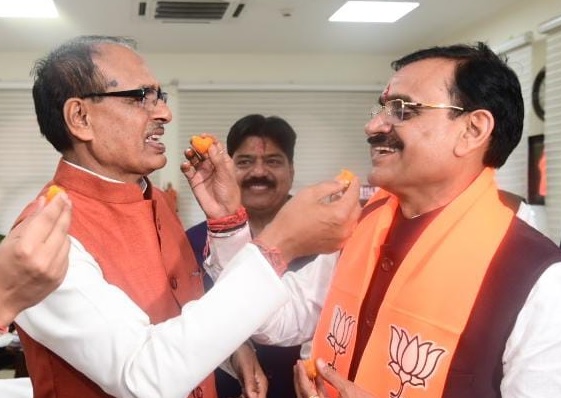INTERVIEW: Author Mukarram Niyaz talks about his book on film reviews and movie journalism in Urdu

Shams Ur Rehman Alavi
NewsBits.in
BHOPAL: [Here is an interview with Syed Mukarram Niyaz after the publication of his recent book that has a compilation of his film reviews in Urdu]
Q. You are basically a story writer, how did you turn towards movie world?
Mukarram Niyaz: I wrote my first story when I was in third or fourth standard. In my childhood, cinema was one of the few available options for entertainment. Even the women who avoided going out, would use rickshaws and 'ikka' that had curtains to go to the film theatres. Hence, I had an interest towards movies.
In fact, I recall that in Hyderabad and Karnool, there were theatres were the sections for men and women were separate. As kids, we would pester the elders and got to the talkies. The movies that I saw and the songs I heard, then, are still afresh in my mind and memories.
My three uncles and another relative, they were film buffs, and often told stories about movies and everything ranging from lyricist's name to director and even date of release of a movie in the past. Also, I read the famous Shama magazine a lot.
Q. Though you have focused on movies of different kinds, what are the movie genres that you prefer to watch.
Mukarram Niyaz: I feel that with age, the preference and interest change. I liked Amitabh Bachchan's movies when I was a child. In those days his 'angry young man' image had an appeal for all of us. But later, I watched the three Khans' movies, Govinda, Anil Kapoor and Jackie Shroff's movies.
Among contemporary stars, I like Ayushman Khurana and Rajkumar Rao. I don't believe the box office collection and don't connect it with a film's standard or success. A movie that has acting, attractive scenes and a unique story, will always draw attention, ranging from Jhund to Lal Singh Chadha and Jai Bhim amongst others.
Q. When did you write your first film review?
Mukarram Niyaz: I think, it must be nearly a decade ago, 2012 or 2014. I had written a long piece and posted it in a Facebook group. I hadn't even kept it, saved. Later, when I saw how Hanif Samana had published a collection of his articles, I too felt that I should gather my articles and reviews. For the last couple of years, I have been publishing my articles on my blogs and then share on social media. That's how the reviews continued and my book based on the criticism and reviews got ready.
Q. How do you compare Mumbai film industry and South India's movie world, the similarities, differences and styles?
Mukarram Niyaz: Bollywood is one of the biggest movie industries in the world and these days some people rue that the industry is witnessing a downfall. Besides, a section is also trying to run a campaign to boycott the Bollywood movies.
These people are not aware of the history, well. We have seen a similar phase in 1980s too when Telugu and Tamil movies were recycled or the story was straight picked up and presented in the form of a new movie.
South India's film industry is divided into four languages, Mollywood, Kollywood, Tollywood and Sandalwood i.e. Malayalam, Tamil, Telugu and Kannada. Tamil movies were earlier known for unbelievable scenes and too much violence while Telugu movies focused on actresses and actor's dance movements. Malayalam movie industry also produced a lot of B and C grade movies, particularly, the ones with Adult content.
But over the last decade, South Indian movies have stolen a march over Bollywood and even got international recognition. Already, they are having pan Indian following, now. Though Kamal Hassan and Rajinikanth were big names in the past too, these days a new generation of actors has come and they are all known throughout India.
The good and bad phases will always come. However, just because of any phase or certain bad movies, we can't blame an entire movie industry. Southern India's cinema is reaching new heights and getting popular. But Bollywood too would regain its position in near future. Right now, we admire South Indian movies and accept that they are doing well.
Q. It appears that you are not satisfied with the standard of film journalism in Urdu media and its publications. What are your views?
Mukarram Niyaz: The editor of Mumbai Urdu News, Shakeel Rasheed, recently said about my book that it has made him recall a lot about cine world and movie journalism. He says that the past was elegant but the present is dark and film journalism has almost ended in Urdu.
The Urdu newspapers mostly rely on English or other language agencies, newspapers' reports and translate them though it is not journalism. 'Earlier there were magazines like Z Rahman Naiyer's Rubi, Filmi Sitare, Shakila, Kahkashaan, Gulfaam apart from specially dedicated pages on movies in newspapers that were prepared by journalists with great effort. The directors, producers and actors would feel pride when news about them or their work was published in Urdu dailies and weeklies or magazines. However, this situation no longer exists".
Q. Do you think any film magazine of the standard of Shama, Rubi or Filmi Sitare would come out in Urdu in future?
Mukarram Niyaz: Ashar Najmi, who is editor of Isbaat, a literary magazine, had planned a magazine and had even asked me to join its editorial team. However, right now I am tied up with several projects and unable to devote time in this regard.
Q. Your book is not voluminous though it could have more reviews and be thicker?
Mukarram Niyaz: There is no reason. The book is slim because I have several responsibilities and I decided to compile the reviews that I had written so far, and got it published. In 'Shama' magazine, a famous column by 'Musaafir' was published and after I was reminded about it, I intend to focus on publishing something similiar.










